第10章 CHAPTER VI.(1)
SIX months after our friend had left England George Corvick, who made his living by his pen, contracted for a piece of work which imposed on him an absence of some length and a journey of some difficulty, and his undertaking of which was much of a surprise to me. His brother-in-law had become editor of a great provincial paper, and the great provincial paper, in a fine flight of fancy, had conceived the idea of sending a "special commissioner" to India. Special commissioners had begun, in the "metropolitan press," to be the fashion, and the journal in question must have felt it had passed too long for a mere country cousin. Corvick had no hand, I knew, for the big brush of the correspondent, but that was his brother-in-law's affair, and the fact that a particular task was not in his line was apt to be with himself exactly a reason for accepting it. He was prepared to out-Herod the metropolitan press; he took solemn precautions against priggishness, he exquisitely outraged taste. Nobody ever knew it - that offended principle was all his own. In addition to his expenses he was to be conveniently paid, and I found myself able to help him, for the usual fat book, to a plausible arrangement with the usual fat publisher. I naturally inferred that his obvious desire to make a little money was not unconnected with the prospect of a union with Gwendolen Erme. I was aware that her mother's opposition was largely addressed to his want of means and of lucrative abilities, but it so happened that, on my saying the last time I saw him something that bore on the question of his separation from our young lady, he brought out with an emphasis that startled me: "Ah I'm not a bit engaged to her, you know!"
"Not overtly," I answered, "because her mother doesn't like you.
But I've always taken for granted a private understanding."
"Well, there WAS one. But there isn't now." That was all he said save something about Mrs. Erme's having got on her feet again in the most extraordinary way - a remark pointing, as I supposed, the moral that private understandings were of little use when the doctor didn't share them. What I took the liberty of more closely inferring was that the girl might in some way have estranged him.
Well, if he had taken the turn of jealousy for instance it could scarcely be jealousy of me. In that case - over and above the absurdity of it - he wouldn't have gone away just to leave us together. For some time before his going we had indulged in no allusion to the buried treasure, and from his silence, which my reserve simply emulated, I had drawn a sharp conclusion. His courage had dropped, his ardour had gone the way of mine - this appearance at least he left me to scan. More than that he couldn't do; he couldn't face the triumph with which I might have greeted an explicit admission. He needn't have been afraid, poor dear, for I had by this time lost all need to triumph. In fact I considered I showed magnanimity in not reproaching him with his collapse, for the sense of his having thrown up the game made me feel more than ever how much I at last depended on him. If Corvick had broken down I should never know; no one would be of any use if HE wasn't.